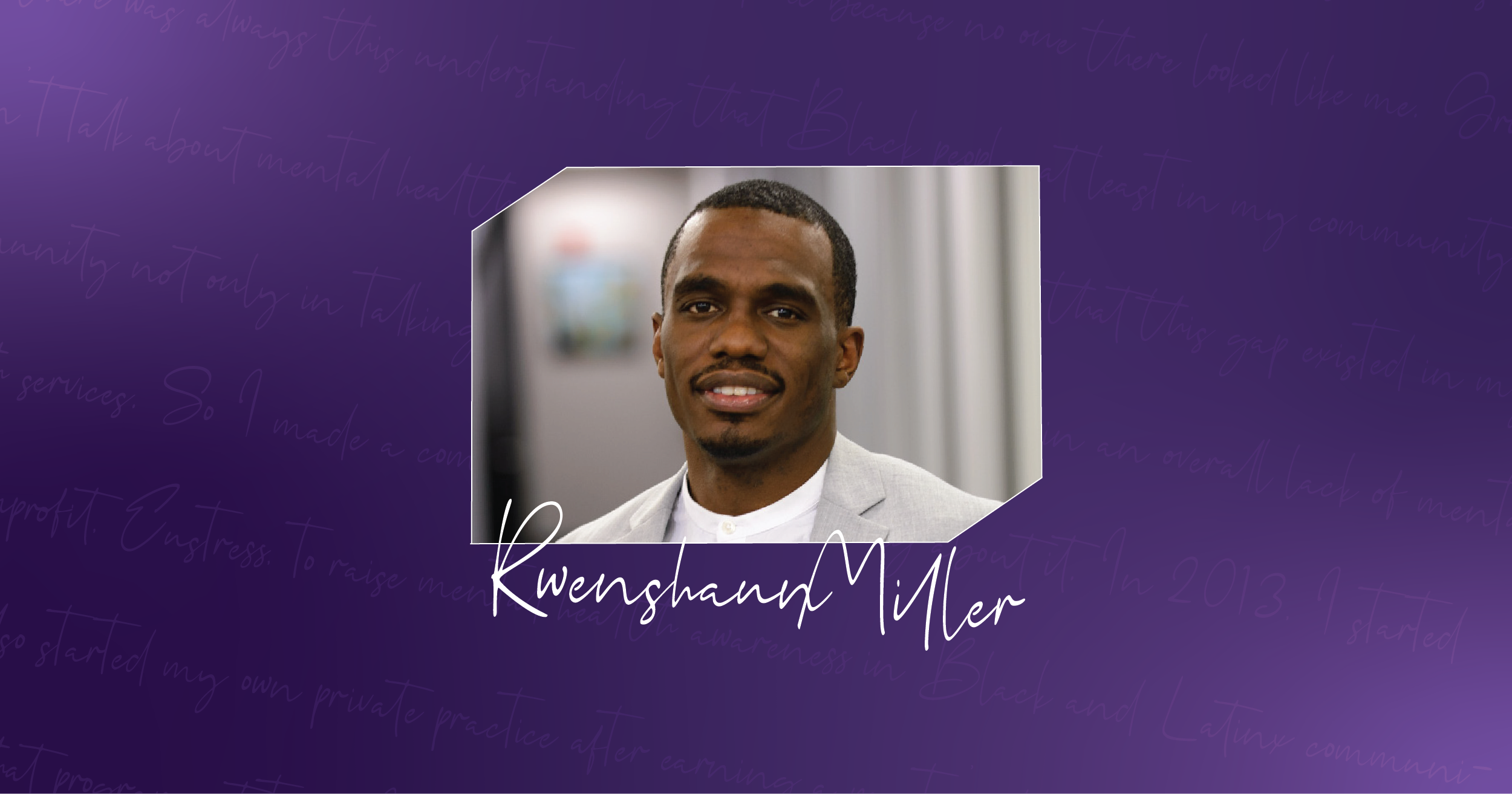I first got into thinking about mental health because of my own experience living with bipolar disorder.
I was diagnosed in 2006, during my sophomore year in college. I was hospitalized and being in that atmosphere scared me because no one there looked like me. Growing up, there was always this understanding that Black people, at least in my community, didn’t talk about mental health. Over time, I came to realize that this gap existed in my community not only in talking about mental health, but also in an overall lack of mental health services. So I made a commitment to do something about it.
In 2013, I started my nonprofit, Eustress, to raise mental health awareness in Black and Latinx communities. I also started my own private practice after earning a master’s degree in counseling. But even in that program, at times I would think, “Yo, this wouldn’t work in my ‘hood. I understand this is ‘evidence based’ and that these techniques are rooted in research, but at the same time, who are you researching? What populations are you really working with to see if these types of things work?”
Then one day I ran into a colleague of mine. She was just finishing her doctorate at The Chicago School and told me about the International Psychology program. When I looked it up, I became excited by the emphasis on culture. It had a real focus on different strategies for different communities, which resonated with me—because with the populations I’m working with sometimes I have to do things that are considered unconventional. I’m going into their homes, using video games to connect with my kids or working out with them, just being in all these settings that they don’t teach you about in more traditional programs.
After I enrolled and started taking classes, I began to have a better understanding of what exactly culture is and the impact it has on our perception of the world. One of the most powerful experiences was my first field excursion to Ghana in 2018. That was life changing for me, especially being a Black man from America. Obviously, I knew that a lot of my heritage came from Africa, but there was something special about actually being on the continent and in that atmosphere, in a country of people who look like me. Also, having these tough conversations with my classmates about race and power structures and about how these things interact—that work felt tangible, like something that could translate into real change.
A cultural reckoning is happening in the United States right now, one that I believe spills over into mental health. The unrest we’re seeing has been empowering. I feel like it’s opening up important conversations. In terms of mental health, we’re starting to peel back the layers of what racism has done to my people, when it comes down to the way we address our issues and the stressors we deal with on a daily basis.
As I prepare to graduate in May, I think about the ways that The Chicago School has stretched me: to see how the world is bigger than me, bigger than my community, bigger than the United States. When you start to realize that, you start to move a little bit differently. You start to be a little more empathetic and understand the different struggles people everywhere encounter. And you gain knowledge to change systems around the world.
Learn more about The Chicago School
To learn more about academic programs at The Chicago School, fill out the information below to request more information. You can also apply today through our application portal here.

